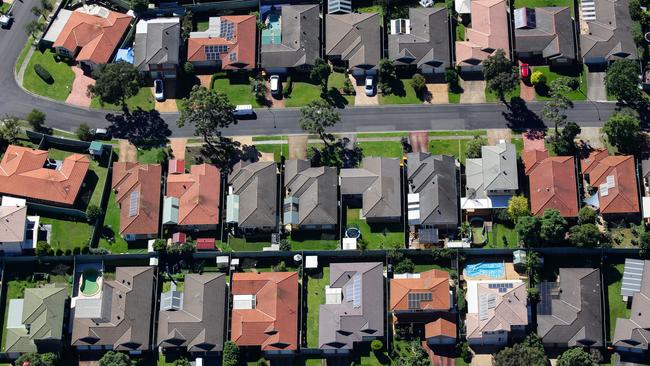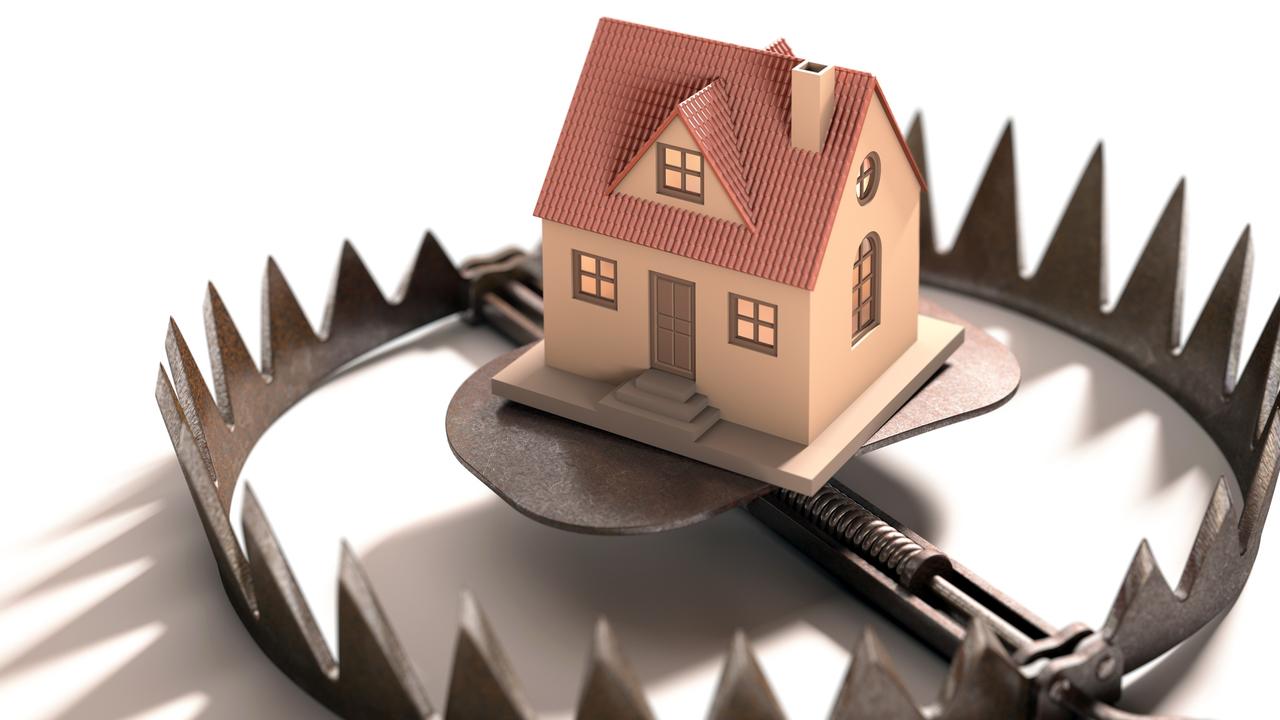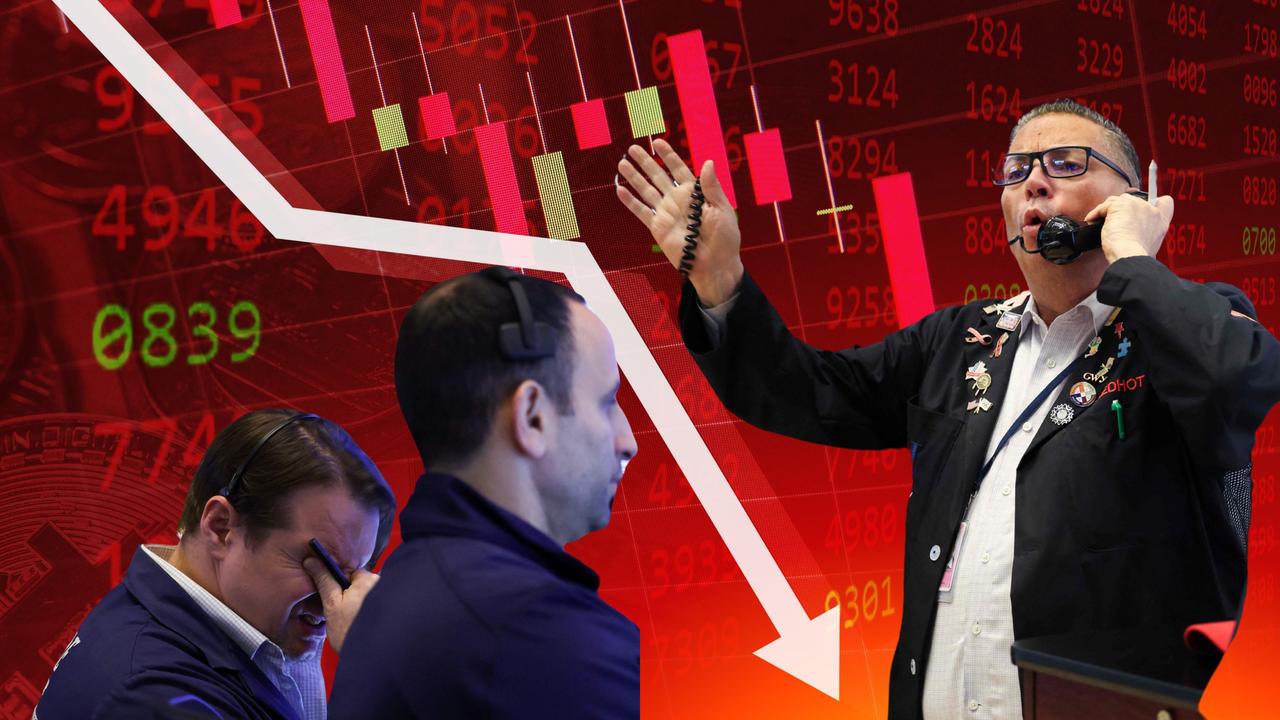Shares share shrinks as the house wins
A new generation of shareholders joined the market last year but the latest household wealth figures finds they are nowhere to be seen.

More than 700,000 new shareholders jumped into the sharemarket last year … where did they go?
Despite a very buoyant ASX where investors are set for another very strong calendar year, the latest household wealth statistics from the Australian Bureau of Statistics show that shares as a portion of household wealth was lower than cash.
In fact, wealth relating to shares is shrinking steadily: Back in 2005 the same survey showed share holdings accounted for 13 per cent of household wealth. Today the figure has shrunk to 9 per cent.
As the shareholding factor fades, “property assets’’ now totally outweigh shares as the Australian love of bricks and mortar continues to grow.
The ABS property category includes household wealth in both residential homes and investment: Millions of Australians have interests in more than one residential property.
The poor showing of share ownership could be linked with the decline in the range of blue-chip stocks on the ASX as a takeover boom continues to be led by large super funds.
Sydney Airport – with 150,000 shareholders – is the latest blue chip set to be removed from the market by a consortium of super funds.
There is also some loss of potential investment funds to new cryptocurrency investments such as Bitcoin and Ethereum.
But the key explanation appears to be that although last year’s wave of millennial investors went into the market in a rush, they did not spend that much money.
Industry analysts suggest that most of the new arrivals in the sharemarket bought minimum amounts of stocks – between $500 and $1000 – often with an intent to do quick trades.
Moreover, new academic research from RMIT shows that many of the millennials who joined the market in 2020 lost money on day trading despite a rising market.
A report from RMIT says that after the remarkable 90 per cent lift in trading activity in the second half of 2020 day traders lost $6.50 for each $1000 a day invested.
Russel Chesler, head of investments and capital markets at VanEck, says that despite the surge in shareholding activity, household wealth is now out of balance, with Australians stockpiling their wealth into property.
According to Chelser: “The arrival of many new investors in recent times is very welcome for the share market but that group is still a long way off from making a difference – in the meantime this decline is happening – the time is overdue for Australian households to address the imbalance and lower their exposure.’’
Chesler adds: “Inside the property market these investors face the risk of prices correcting from current levels when interest rates rise.’’
Net Australian household worth rose to a fresh record high of $13.43 trillion in 2Q 2021 and wealth per capita rose to a record high of $522,032.
However, around two-thirds of that wealth was made up of property assets ($8.94 trillion), $3.56 trillion of superannuation and $1.18 trillion held in shares, with less than the $1.34 trillion held in cash deposits.
At the Australian Shareholder Association, policy officer Fiona Balzer, says: “It’s important to note the dollar level of share ownership is up, but the proportion of household wealth relating to shares has dropped, so it’s a relative change. I think you will find looking at those new shareholders they are operating in small amounts, while if you look at home values they don’t go up in $500 amounts, it’s much faster than that.”
Within a three-month period last year, major broking platforms registered unprecedented levels of new account openings as the first wave of working from home coincided with the quick recovery from the March crash.
Across the three months of March, April and May last year, stockbroker nabtrade reported new account applications rising 360 per cent, trading volumes lifting 95 per cent and logins up 50 per cent.
More than a year later. Gemma Dale, director, SMSF and investor behaviour at NAB, says: “We are finding that the surge in share ownership continues, the number of people opening new accounts continues to increase significantly every month.
“The change in household wealth are all about house-price increases – Australian shares are up about 10 per cent since their pre-Covid peak early last year, but house prices are up nearly 20 per cent over the last 12 months,” says Dale.







To join the conversation, please log in. Don't have an account? Register
Join the conversation, you are commenting as Logout